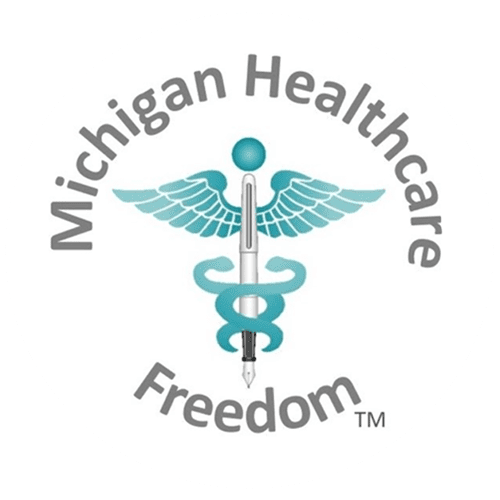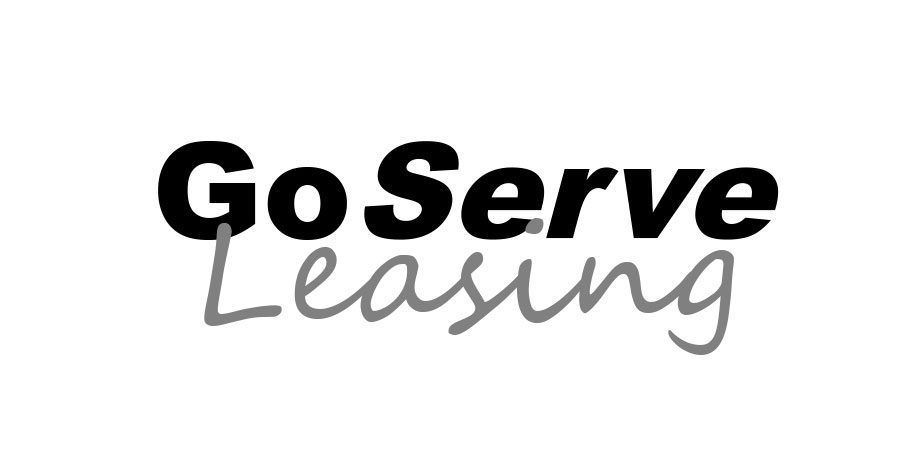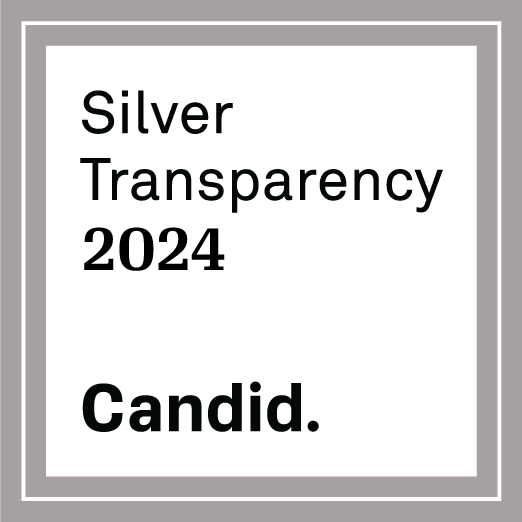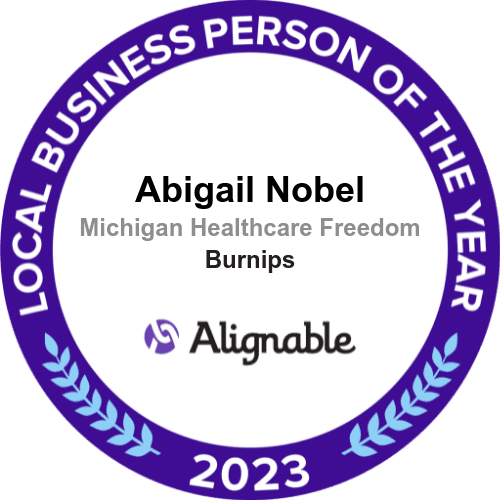
The American Academy of Pediatrics (AAP) is well funded by Big Pharma, like many medical professional societies. Those societies claim to be independent of their funders, but are they really?
The AAP just recommended all infants 6 months of age through 23 months of age get the mRNA vaccination against COVID-19. This recommendation is unsupported by any scientific evidence and contraindicated by the evidence that COVID is not a significant threat to infants, except in extraordinary cases where other, more serious risk factors coexist:
https://thehill.com/policy/healthcare/5461645-rfk-jr-aap-covid-19-vaccines-children/
RFK Jr. attacks pediatric group after vaccine recommendations
By Nathaniel Weixel - August 20, 2025Hours after the American Academy of Pediatrics (AAP) broke with Health and Human Services (HHS) Secretary Robert F. Kennedy Jr. and recommended COVID-19 vaccines for all young children, Kennedy blasted the association as beholden to corporate interests.
The AAP on Tuesday recommended all infants and children 6 months through 23 months get vaccinated against COVID-19 to help protect against serious illness.
Kennedy responded in a post on social platform X, calling the group’s recommendations “corporate friendly” because the AAP receives donations to its Friends of Children Fund from vaccine companies like Pfizer and Moderna, among others.
The philanthropic fund backs projects supporting child health and equity.
The HHS secretary said the organization should disclose “its corporate entanglements … so that Americans may ask whether the AAP’s recommendations reflect public health interest, or are, perhaps, just a pay-to-play scheme to promote commercial ambitions of AAP’s Big Pharma benefactors.”
AAP President Susan Kressly said in a statement the group would welcome an opportunity to sit down with Kennedy to review the recommendations.
“This attack on the integrity of pediatricians is unfortunate, but it does not change the facts,” Kressly said. “We are transparent about our funders, follow rigorous conflict-of-interest disclosures and maintain safeguards to ensure the integrity and independence of our guidance.”
The AAP and HHS have been at odds for months, and tensions reached a head when Kennedy dismissed all the members of the Centers for Disease Control and Prevention’s Advisory Committee on Immunization Practices and replaced them with his own handpicked representatives, including some outright vaccine skeptics.
The AAP chose not to participate in the reconstituted panel’s first meeting in June, calling it “illegitimate.” Kennedy later excluded the fund along with other top medical organizations from working with the panel to research and help influence vaccination recommendations.
Kennedy has long criticized the so-called medical establishment for conspiring to make Americans sick. His first “Make America Healthy Again” report accused doctors of being overly influenced by the pharmaceutical industry to overprescribe certain medications that don’t treat the root causes of disease.
More, from The Hill:
Doctors take on RFK Jr. on back-to-school COVID vaccines
By Joseph Choi - August 22, 2025The medical community is waging a public relations fight against Health and Human Services Secretary Robert F. Kennedy Jr. over COVID-19 vaccines as students head back to school across the U.S.
The American Academy of Pediatrics (AAP) on Wednesday issued more expansive COVID-19 recommendations for children than the Department of Health and Human Services (HHS), underscoring the growing breakdown in cooperation between doctors and federal health authorities.
Parents trying to navigate these recommendations face an increasingly complicated array of recommendations.
For children 6 months to 11 years old who are not immunocompromised, the Centers for Disease Control and Prevention (CDC) recommends shared decisionmaking with doctors, effectively leaving it up to parents.
However, the Food and Drug Administration (FDA) last month only approved the Moderna COVID-19 shot — the only one on the market — for kids with an underlying condition, complicating access for healthy children.
The AAP guidance, like the CDC, advises shared decisionmaking for most children, but recommends COVID-19 vaccines for additional at-risk groups, including people who have never received a vaccine or who live with others at high risk of severe COVID.
The AAP maintains its own immunization schedule, recommending one or more doses of the COVID-19 vaccine for all children over 6 months old.
Ulrich von Andrian, president of the American Association of Immunologists, advised that parents confused by the conflicting messaging consult with a trusted health care professional on how to navigate the guidance.
Kennedy fired an opening salvo in the fight over COVID-19 recommendations earlier this year, when the CDC announced it would no longer recommend the COVID-19 shot for healthy children, citing a lack of clinical data to justify annual immunizations.
Kennedy is a prominent vaccine skeptic and petitioned the FDA in 2021 to revoke the emergency-use authorizations of the COVID-19 vaccines, as thousands of people were dying of the virus.
Routine immunization for other respiratory viruses such as annual influenza are still recommended by the CDC for children, and RSV monoclonal antibodies are recommended for infants between 8 months and 19 months.
Prior to Kennedy taking over Health and Human Services, organizations such as the AAP were typically aligned with the federal government, taking part in meetings discussing immunization recommendations. But when Kennedy gutted the CDC’s Advisory Committee on Immunization Practices, the AAP chose not to engage in what it called an “illegitimate” meeting this summer.
Other prominent physicians’ groups welcomed the AAP’s guidance.
Von Andrian said his group “is very pleased to see trusted, independent organizations offering evidenced-based vaccine recommendations for patients and physicians to consider.”
“It is critical that the public and health care professionals have access to credible, trustworthy information about immunizations in order to make informed decisions about how to protect themselves and their loved ones,” he added.
In a meeting held this week by the Center for Infectious Disease Research and Policy’s (CIDRAP) Vaccine Integrity Project, expert members of the group discussed what the current scientific literature supported in regard to COVID-19 vaccinations.
“[AAP’s] recommendations are consistent with our literature findings specifically for COVID, that children at highest risk for severe disease and COVID transmission receive the COVID vaccine,” CIDRAP Director Michael Osterholm said in concluding the meeting.
“Other medical societies will be following them in the coming weeks. Americans will have evidence-based immunization recommendations from medical experts for the viruses responsible for tens of thousands of hospitalizations and deaths annually, and they’ll come from clinicians who spend every day caring for these patient populations,” he added.
Supporters of Kennedy’s decision, however, argue that not recommending COVID-19 vaccines for healthy children falls in line with the current evidence and other guidance around the world.
“Since 2022, the World Health Organization has taken the same position Secretary Kennedy took. The Canadian vaccination authority took the same position as Secretary Kennedy. The UK vaccination organizations took the same position as Secretary Kennedy,” noted Monique Yohanan, physician and senior fellow at the conservative nonprofit Independent Women.
The World Health Organization does not recommend routine COVID-19 revaccination for healthy children and adolescents, recommending the shot for all immunocompromised people, and children and adolescents with at least one comorbidity.
“We were the only country in the world recommending this vaccine for healthy kids. So, from my perspective, AAP right now is an outlier with regards to science,” Yohanan added.
Yonahan expressed concern that the discourse over COVID-19 vaccines would bleed into how parents feel about vaccinating against other illnesses, which she believes are more pressing issues.
“I think it’s really important as we get to school season, for parents to revisit — we definitely don’t have enough kids who are vaccinated against the measles,” she said. “We definitely need to focus on the vaccines that are important for community protection.”
In recent years, the U.S. has fallen off the ideal 95 percent vaccine coverage rate for protection against measles. The west Texas region where the measles outbreak was only recently declared over had nearly half of all students exempted from measles vaccinations. *







